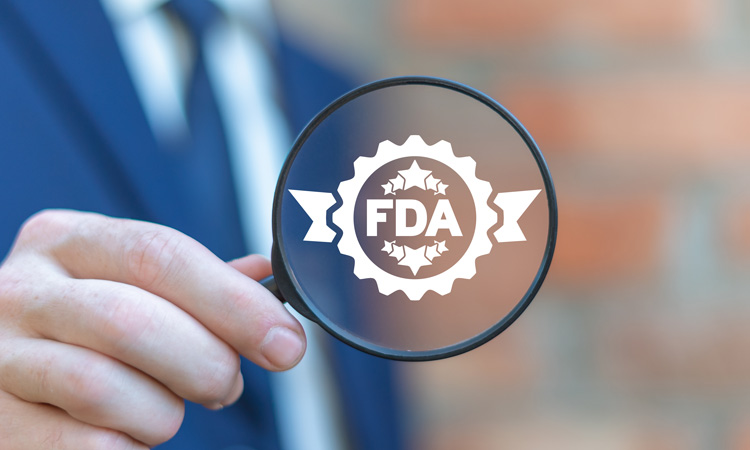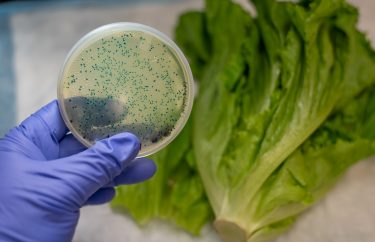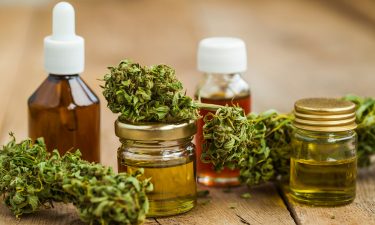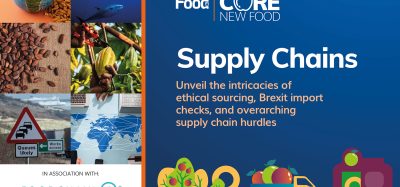FDA outlines leafy greens action plan and advances CBD research
- Like
- Digg
- Del
- Tumblr
- VKontakte
- Buffer
- Love This
- Odnoklassniki
- Meneame
- Blogger
- Amazon
- Yahoo Mail
- Gmail
- AOL
- Newsvine
- HackerNews
- Evernote
- MySpace
- Mail.ru
- Viadeo
- Line
- Comments
- Yummly
- SMS
- Viber
- Telegram
- Subscribe
- Skype
- Facebook Messenger
- Kakao
- LiveJournal
- Yammer
- Edgar
- Fintel
- Mix
- Instapaper
- Copy Link
Posted: 6 March 2020 | Sam Mehmet (New Food) | No comments yet
The 2020 Leafy greens STEC Action Plan is designed to outline FDA’s plans to protect the safety of leafy greens, and the agency has also released updates on its research efforts and plans to educate consumers about CBD products.


The US Food and Drug Administration (FDA) has released the 2020 Leafy Greens STEC Action Plan, which spells out the actions the FDA plans to take in 2020 in the areas of prevention, response and addressing knowledge gaps related to leafy greens safety.
The FDA has also provided updates on its efforts to evaluate cannabidiol (CBD) products, including several new steps in areas of education, research and enforcement with the ultimate goal of continuing to protect the public health and working to provide market clarity.
2020 Leafy greens STEC Action Plan
The FDA has previously called on the leafy green industry to do more, and meeting its own responsibility is said to involve collaboration with state partners on education, training and inspections. The plan is designed to help foster a more urgent, collaborative and action-oriented approach.


The FDA also hopes to issue proposed revisions to FSMA’s agricultural water requirements, for covered produce other than sprouts, in 2020. It has extended the compliance dates for those provisions to address feedback about practical challenges in implementing the requirements.
In the area of response, FDA will reportedly soon be publishing an investigation report on three outbreaks of E. coli O157:H7 infections tied to romaine lettuce and leafy greens between November and December 2019. Each was tied to the Salinas Valley in California. It will also be conducting follow-up surveillance of fields in that region during this autumn’s growing/harvest season.
CBD products
Aside from one prescription drug approved to treat two rare, severe pediatric epilepsy disorders, no other CBD products have been evaluated or approved by the FDA.
The FDA has announced that it remains focused on educating the public about the number of questions that remain regarding CBD’s safety.
The agency recently updated the public on concerns about potential harm from CBD products, including potential liver injury, interactions with other drugs and male reproductive toxicity, as well as side effects such as drowsiness.


To address the questions and concerns surrounding CBD, FDA is seeking reliable and high-quality data. This includes data on, among other things: the sedative effects of CBD; the impacts of long-term sustained or cumulative exposure to CBD; transdermal penetration and pharmacokinetics of CBD; the effect of different routes of CBD administration (e.g., oral, topical, inhaled) on its safety profile; the safety of CBD for use in pets and food-producing animals; and the processes by which “full spectrum” and “broad spectrum” hemp extracts are derived, what the content of such extracts is, and how these products may compare to CBD isolate products.
Given all the research and activity in this space, the FDA has said it is taking new steps to provide a public and transparent way for stakeholders to provide new and emerging information to it in real time as it becomes available. To this end, it is re-opening the public docket established for its May 2019 public hearing. The docket is said to provide a valuable conduit for submission of scientific data on CBD to the agency. This docket also includes a mechanism for a stakeholder to submit data or information that the stakeholder believes to be confidential.
FDA will also continue to monitor the marketplace and take appropriate action against unlawful CBD products that pose a risk of harm to the public.
Caitlin Boon, Associate Commissioner for Food Policy and Response at the FDA will be speaking at Food Integrity 2020. To find out more about her contributions and about the event as a whole, click here to find the agenda and speaker list. You can also listen to New Food’s podcast with Boon here.
Related topics
CBD hemp & cannabis, Food Safety, Health & Nutrition, Regulation & Legislation, Research & development, The consumer









